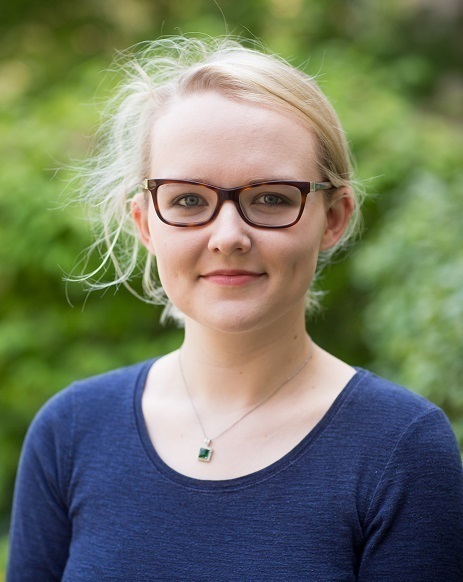
As the new academic year begins at Notre Dame, English PhD student and graduate Irish minor Claudia Carroll is also beginning as a graduate fellow at Notre Dame’s Institute for Advanced Study (NDIAS).
In the midst of the ongoing global pandemic, "resilience” is the theme of the 2021-2022 cohort, comprised of 20 senior scholars and graduate students drawn from the arts, humanities, sciences, and social sciences.
Claudia received her undergraduate degree in History and English Literature from Trinity College Dublin.
At Notre Dame, advised by Keough-Naughton Faculty Fellow Sara Maurer, she is focusing on the nineteenth-century novel through the double lens of narrative theory and cognitive science.
“I am exploring how to account for the profound and lasting impact certain fictional characters have on their readers,” Claudia explains, “with that impact leading readers to think and talk about fictional characters as if they are real people—developing attachments to them, speculating about their behavior in hypothetical situations, and feeling like we know them just as we know our friends and family.”
These favored characters—think Elizabeth Bennett in Jane Austen’s Pride and Prejudice or David Copperfield in the Charles Dickens novel or, perhaps in contemporary times, either Harry Potter or Marianne Sheridan of Sally Rooney’s Normal People–are “resilient” in three ways, Claudia says.
“First, certain fictional characters prove their resilience throughout the novel, despite ‘developing’ or changing in response to the plot. Second, these characters prove resilient in the minds of readers even after they finish the novel—extending at times to readers using a favored character as a role model for behavior in real life. And third, resilience is manifested in certain characters’ continued popularity over time.”
As Claudia explores this particular facet of the resilience theme, she is incorporating insights from cognitive science on how we humans assess other entities as “human-like.” She is also working with Notre Dame Librarian Eric Morgan on developing a computational text analysis program to categorize the language of characterization in our huge corpus of nineteenth-century novels.
Based on her experiences with the challenges of interdisciplinary work, Claudia has founded an interdisciplinary seminar series and working group at Notre Dame for graduate students called The Cyborg Series.
As Claudia’s graduate career has moved through literature, history, philosophy, and cognitive science, her aim has stayed consistent: to understand how narrative affects individual minds and, through them, society as a whole.
“When entering graduate school,” Claudia says, “I first studied the relationship between historiography and Irish literature, and used narrative theory to account for how some polemical Republican histories have proved much more resilient, and socially influential, than scholarly histories.
“I spent two summers attending the Keough-Naughton Institute’s IRISH Seminar, first in Rome and then in Dublin. In both, my research was informed by sessions with scholars from anthropology, history, political science, and other disciplines. I learned how to make my own disciplinary knowledge in narrative structure helpful to other scholars thinking about similar political phenomena. As part of the new NDIAS cohort, I’m looking forward to this same kind of exciting interdisciplinary conversation.”